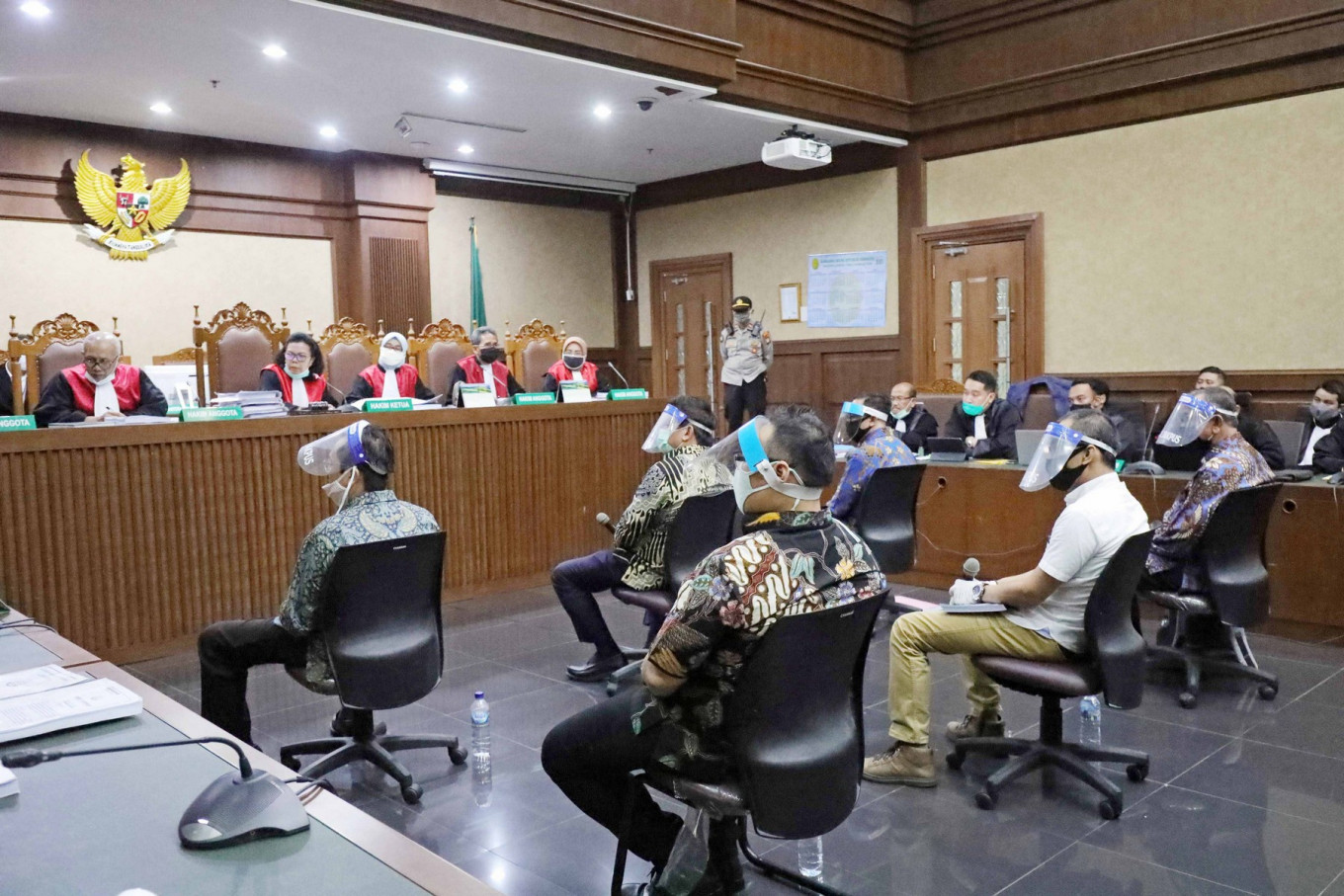Popular Reads
Top Results
Can't find what you're looking for?
View all search resultsPopular Reads
Top Results
Can't find what you're looking for?
View all search resultsLife sentence a deterrent
Regardless of the sum of state money stolen, life in prison should be a yardstick for law enforcement investigating corruption cases.
Change text size
Gift Premium Articles
to Anyone
A
ll six defendants tried for their roles in the state insurer PT Asuransi Jiwasraya corruption case have received life sentences. On Monday and earlier this month, the Jakarta Corruption Court found them guilty of corruption and money laundering that resulted in at least Rp 16.8 trillion (US$1.1 billion) in state losses.
That is the maximum sentence the country’s judiciary system can offer, although certain crimes such as natural disaster-related corruption are punishable by death. But the six graft convicts deserve life in prison, given the amount of money they swindled and the widespread impact of their crimes.
The scam, which has been called the nation’s biggest fraud case, has undermined public trust in the insurance industry in general, especially in state insurers, compounded by the discovery of corruption in another state insurance company, PT Asabri. The graft case has sent the wrong message that the country’s capital market is an unsafe place for local and international investors.
The fraud may amount to a crime against humanity, considering the 2.63 million Jiwasraya policyholders, 90 percent of whom are retirees, who have lived in distress ever since the financial fiasco began to unfold in 2018 and the company failed to pay its matured policies.
The trials of the six defendants revealed how Jiwasraya executives traded and invested policyholders’ funds in a number of low quality assets from 2008 to 2018 with the help of their partners in crime, such as asset management companies, businessmen and fund managers, for their own personal gain.
The maximum penalty for graft convicts like businessmen Benny Tjokrosaputro and Heru Hidayat, former Jiwasraya president director Hendrisman Rahim, former financial director Harry Prasetyo, former finance and investment division head Syahwirma and Joko Hartono Tirto, a director of asset management company PT Maxima Integra, is what the public has demanded. The life sentences are expected strengthen the deterrence that the country badly needs in its fight against corruption.
In the Jiwasraya case, the court ordered Benny to pay Rp 5 billion in fines and Rp 6 trillion in restitution to the state and ordered Heru to pay Rp 10.7 trillion in restitution, a decision that clearly aimed to recover state assets. The two were also found to have laundered the ill-gotten money through the purchase of stocks, luxury cars and apartments in Singapore, among other assets.
Regardless of the sum of state money stolen, life in prison should be a yardstick for law enforcement investigating corruption cases. This is because misappropriation of state funds, whether big or small, can deprive children of their right to education and, hence, their future, and can deprive poor people of access to health care. Corruption committed prior to elections can also endanger democracy.
Asset seizure is another type penalty that can deter corruption. While the process of asset recovery can be complicated, this legal measure can ensure that justice is served for victims of graft. One thing is certain, however, payment of restitution does not undo a crime.










